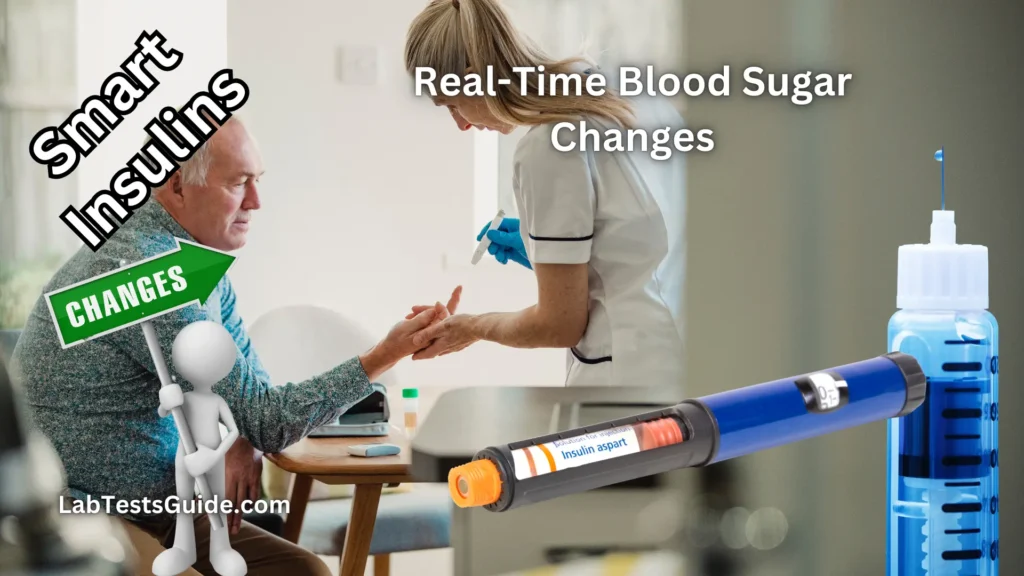BOSTON – Controlling blood sugars could become significantly easier for people with type 1 diabetes thanks to innovative developments in insulin technology. Type 1 diabetes requires patients to manage their blood sugar levels through regular insulin injections or pumps. However, a new breakthrough in “smart” insulins promises to respond to real-time blood sugar fluctuations, potentially transforming diabetes care.

The Challenge of Managing Type 1 Diabetes
Individuals with type 1 diabetes struggle to produce adequate insulin, necessitating frequent monitoring and insulin administration to prevent severe complications such as kidney disease, heart disease, and vision loss. The current standard involves multiple daily insulin injections or the use of an insulin pump. Overcorrection can lead to dangerous episodes of hypoglycemia (low blood sugar), creating a delicate balance that patients must constantly manage.
Breakthroughs in Smart Insulin Technology
Recent research is focused on developing “smart” insulins that could revolutionize diabetes management by responding dynamically to changing blood sugar levels. Unlike traditional insulins that stabilize blood sugar temporarily, these innovative formulations activate only when blood glucose levels exceed a certain threshold, and deactivate when levels fall below a specific point. This functionality could potentially allow for insulin administration as infrequently as once a week, easing the daily burden on patients.
International Research Efforts and Funding
Researchers in the United States, Australia, and China have made significant strides in creating these glucose-responsive insulins (GRIs). The development of these smart insulins has received substantial support, including nearly £3 million allocated to six research projects through the Type 1 Diabetes Grand Challenge. This initiative, funded by Diabetes UK, JDRF, and the Steve Morgan Foundation, aims to accelerate the development and testing of these novel therapies.
Dr. Tim Heise, vice-chair of the scientific advisory panel for the Type 1 Diabetes Grand Challenge, emphasized the potential of smart insulins. “Glucose-responsive insulins are considered the holy grail of insulin therapy, potentially coming as close to a cure for type 1 diabetes as any drug therapy could,” he said. Current insulins require patients to manage their condition meticulously to balance glycemic control and avoid hypoglycemia. Smart insulins could offer a more autonomous and precise approach to managing blood sugar levels.
Advances in Insulin Research
The funded research projects are exploring various aspects of insulin technology:
- Glucose-Responsive Insulins (GRIs): These insulins activate only when needed, aiming to stabilize blood sugar levels effectively and minimize the risk of both hyperglycemia and hypoglycemia.
- Ultrafast Insulins: New formulations are being developed to act more rapidly, reducing the delay between insulin administration and its effect on blood glucose levels. This advancement is crucial for improving the efficacy of insulin pumps and hybrid closed-loop systems.
- Combined Hormone Formulations: One project is developing a protein that combines insulin with glucagon. While insulin lowers blood glucose, glucagon stimulates glucose release from the liver. This combination could offer a more balanced approach to maintaining stable blood glucose levels.
Looking Ahead
Rachel Connor, director of research partnerships at JDRF UK, highlights the potential impact of these advancements. “Managing glucose levels with insulin has been challenging for over a century. We hope these projects will lead to insulins that respond in real-time to glucose changes, thereby alleviating some of the burdens of living with type 1 diabetes.”
Dr. Elizabeth Robertson, director of research at Diabetes UK, echoed this optimism. “Supporting these pioneering projects aims to develop insulins that more closely mimic natural blood sugar regulation, potentially transforming the management of type 1 diabetes and significantly improving patients’ quality of life.”
As research continues and these smart insulins move closer to clinical use, there is hope for a future where managing type 1 diabetes is less demanding and more effective, offering patients a better quality of life and reducing the risk of long-term complications.
References:
- Source 1: The Guardian
- Source 2: CBS News







